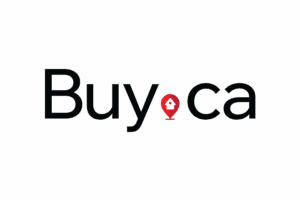You may have heard about the recent stories of Toronto homeowners having their houses mortgaged or sold off without them knowing about it. Homeowners are worried and rightfully so, it seems like mortgage fraud is becoming increasingly common and people are wondering what they can do to protect themselves.
“I am especially concerned for the homeowners who are seniors and may be more susceptible to scams that extract equity from an asset that is increasingly becoming a lifeline to those that have access.” says our mortgage expert Robert Malcolm. With phishing scams via the phone or email becoming more common, you might also be wondering how to protect your elderly family members who are particularly vulnerable. What can you do if these fraud artists get a hold of your personal information and try to take out a mortgage in your name or even sell your home from under you?
That’s where title insurance comes in.
What is title insurance?
Title insurance is an insurance policy that protects homeowners and lenders from losses relating to the title of a home. This includes things like transfer of ownership and mortgage fraud. If you have title insurance you don’t have to worry about owing any money if you do end up being a victim of one of these homeownership scams, however it might be a bit of a pain to sort out. In the end both you and your lender will be protected from any financial damages due to mortgage or title fraud. If a mortgage lender lent money to a fraudster or a buyer unknowingly bought your home from someone impersonating you, they would be made whole by the insurance company who you have your title insurance with.
How do you get title insurance?
The good news is, you probably already have it!
Technically title insurance isn’t mandatory in many places such as Ontario, however in practice nearly every mortgage lender out there requires that you purchase title insurance and if you bought your home in the last 30 years it’s nearly guaranteed you paid for title insurance with your lawyer when you closed on the property. Title insurance is purchased via your real estate lawyer when you purchase your home, and is required by most mortgage lenders and real estate lawyers because it protects them as well as you.
How much does title insurance cost?
Considering most people have it without even knowing, you can expect that title insurance isn’t that costly, and hopefully it’ll stay that way. Title insurance is a one-time payment at the time of closing and it’ll be based on the value of your home. A home that costs $750,000 for example will probably cost around $500 to get title insurance.

How do I check if I have title insurance?
If you don’t remember whether or not you paid for title insurance when you bought your property, you can contact your real estate lawyer and get your statement of adjustments which will list all the expenses you paid when closing on your home. If you’re a meticulous record keeper you can also look for this document yourself as you will have been provided it when you purchased your home.
What about the homes being stolen?
Luckily, since the vast majority of homeowners purchase title insurance when they buy their home as a part of the legal process, after a bit of paperwork and some calling, whichever party lost money due to the fraud will be paid out by the insurance provider. What some are worried about however, is that the recent trend of fraud may lead to insurance providers raising costs.
Insurance providers are for-profit businesses at the end of the day, and if they’re having to pay out more than usual in fraud claims, it’s possible that homeowners will end up eating the costs.
Hopefully more can be done to prevent these frauds from taking place in the future, from a legal perspective and in the form of increased security from mortgage lenders. In the meantime, be careful where you provide your personal information and be on the lookout for anything suspicious in regards to your mortgage or your home. You can check your credit score online to make sure nothing is out of the ordinary, and always be careful about who you share personal information with.
 Ali
Ali





